Constitutional Question Mark over Grylls’ Mining Tax Proposal
The WA National Party’s proposal to increase the 25c per tonne Special Lease Rental (or
production rental levy) paid by Rio Tinto and BHP Billiton to $5.00 per tonne to mine iron ore
in WA is reckless. The party’s leader, Brendan Grylls said that it would increase the annual
revenue to the State to around $2.4 billion. The contrary, very real, risk is that the State would
instead lose the annual $120 million the levy currently generates.
This would be the outcome if the High Court were to rule that the production rental levy is
unconstitutional because it is really an excise duty masquerading as a levy. And, section 90 of
the Australian Constitution bars the states from introducing their own taxes or excises on the
production, manufacture, sale, or distribution of goods.
The government introduced the WA State Agreement in the 1960s. Under its terms, the State
collects 25 cents for every tonne of iron ore mined or exported by Rio Tinto and BHP Billiton.
State Agreements are contracts between the State and any company dealing with most facets
of a major resource project. They establish “an integrated regime for approval, management
and monitoring of all stages of the project under ministerial supervision.” Each State
Agreement must be ratified under an Act of Parliament.
In a 2004 review of State Agreements, the Auditor-General said, “For Parliament to act
unilaterally [by changing the terms of the agreement] could be seen as a breach of good faith
and detrimental to the State’s reputation and interest. Ultimately however, Parliament’s
authority to amend or repudiate its legislation cannot be shackled.”
Grylls has used this 2004 statement by the Auditor-General to bolster his argument that if needs
be he will rip up the existing State Agreements with the two big miners in order to legislate for
his $5 per tonne production rental levy.
He might be able to rip up State Agreements, but he cannot rip up the Australian Constitution.
And it is the Australian Constitution and the High Court that Rio Tinto and BHP Billiton may
turned to if Grylls ever gets his way with his proposed increase levy.
A number of High Court decisions, including the much-cited 1997 case of Ha v NSW have
severely restricted the ability of States to raise revenue through licence fees on tobacco,
alcohol, and petrol. What is clear from Ha and other earlier High Court decisions “is that a tax
on a step of production or distribution of goods to the point of receipt by the consumer is a duty
of excise.”
The Mining Act makes it clear that the Crown owns minerals in their natural state. And, as
Manuel Calzada explains in an academic article published in 2000, this entitles the State “to
levy royalties which would constitute requited payments at the point that they are extracted in
their natural state since they provide the royalty payer with access to a particular material
resource.”
Minerals such as iron occur in their natural state as a component of iron ore and thus require
processing to remove impurities. However the production rental levy is not levied at the point
at which the material is extracted in its natural state, but on exported tonnage of iron ore or
sometime earlier along the production process, such as after the removing of impurities. This
distribution or production step makes the levy an excise, and thus a violation of section 90 of
the Constitution.
Grylls has not directly challenged the view that the tax would be unconstitutional. All he has
said is that that he does not believe Rio Tinto and BHP Billiton would seek to mount a High
Court challenge. Presumably, he believes that the companies need the continuing partnership
agreement with the government. This might be wishful thinking. Just last month, Rio Tinto and
BHP Billiton rejected a Western Australian government offer to abandon the existing 25 cents per
production levy and replace it with an upfront payment.
Yet, Grylls does not believe a High Court challenge to the constitutionality of an increased levy
is likely. And, he is prepared to risk $120 million annual revenue to the State to back his
reckless proposal, a revenue loss Western Australia cannot afford. A loss also that the Royalties
for Region program cannot afford.
Dr Tony Buti MLA
